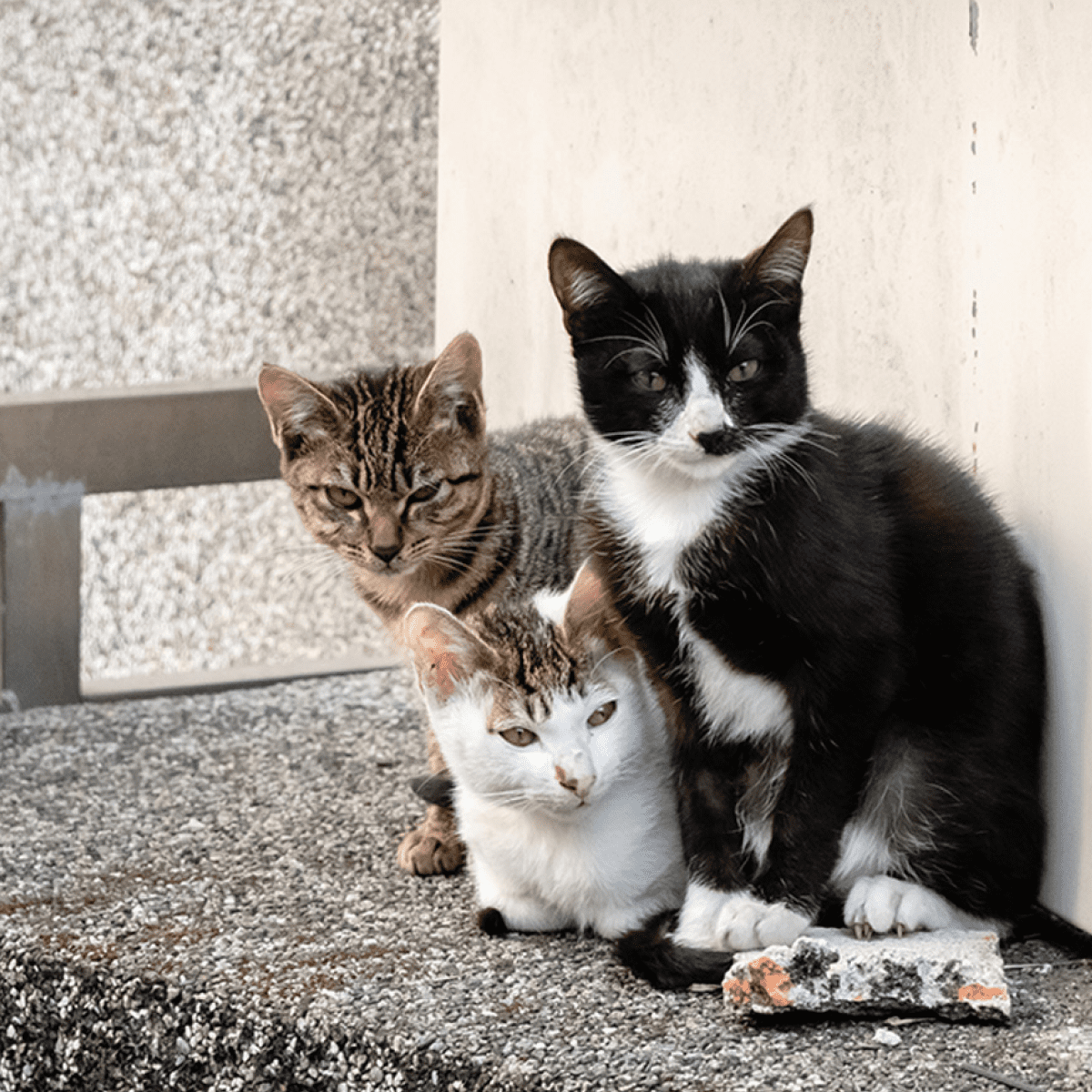Community animals and ways to help them lead a safe and healthy life

Who are community animals?
Community animals, also known as street animals or streeties, are found in our neighbourhood or surrounding areas, co-existing with us – cats, dogs, birds, and more. Since they cannot find all the resources by themselves, it is our responsibility to care for these streeties as they are largely dependent on the human population for food, water, and shelter for their survival. They play a significant role in urban and rural ecosystems and are an integral part of our shared environment.
In general, vaccinated and neutered community animals are self-sufficient and require minimal assistance from us. As community animal caregivers, we can help ensure their well-being by keeping an eye on them and providing occasional support when needed.
Maintaining a private database of streeties can be a helpful way to keep track of the streeties in your community. Such a database can include essential details such as unique markers, medical conditions, and vaccination status, which can improve the overall care of the animals. However, it's crucial to handle this information sensitively to prevent any misuse.
How to become a community caretaker
It takes a village to raise a child. It takes a community to care for its animals.
Just like it takes a village to raise a child, it takes a whole community to ensure that our furry friends are happy and healthy. We often associate the word 'rescue' with helping animals that have had a tough time, but animal welfare is so much more than that. In fact, it's the community members who care for the animals in their neighbourhoods that make the biggest impact. It doesn't matter who you are or what you do - there are plenty of ways to become an animal guardian in your neighbourhood.
One of the biggest myths about animal welfare is that you have to be a very outspoken animal lover to make a difference. But that's simply not true. The most important thing is that you are kind to the animals in your community. So don't worry if you're not the loudest or most vocal person in the room - your kindness and care will make all the difference to those furry creatures in your neighbourhood.
Anyone can contribute to improving the lives of community animals, regardless of age, background, or capacity. Sharing responsibilities among households can alleviate pressure and allow us to achieve more together. For example:
- Household 1 can put out a bowl of clean water
- Household 2 can leave their gate open to provide shelter during extreme weather conditions
- Household 3 can offer a meal or two a day
Even if you can't do any of the above, you can still make a difference by contributing to animal welfare organisations. You can also advocate for animals, spread the word about adoptions, and provide food and medicines.
Ensure the safety of street animals
Without a safe shelter, community animals are vulnerable to cruelty from other animals or even people. It happens more often than you might think. Taking care of community animals involves balancing their freedom with their safety. To ensure the long-term safety of these animals, it is important to educate people in the neighbourhood about how to care for them.
Every small act matters. Stopping someone from being cruel to an animal or taking a few minutes to pet a street dog may seem small, but it adds up. These actions contribute to creating a culture of kindness towards our community animals. Educating the community is the key to creating a safe environment for all who live there. Here are a few ways to do that:
- Stand up for them: When people believe they won't get in trouble, they can be cruel to animals. If you see someone being cruel to an animal, please speak up and stand up for them.
- Unexpected civic hazards: Open manholes, drains, and unfilled pits are hazardous for both humans and animals. Adult dogs can avoid them, but younger or older dogs may not be as capable. Contact the authorities to have the hazards closed, and in the meantime, put up a barrier to keep streeties away from the danger.
- Environmental: Busy roads are risky for street dogs. Using reflective collars can save their lives and provide extra protection at night by enabling drivers to see them.
- Check before you drive off: Before driving away, check under your car for dogs sheltering from the heat. In winter, cats may seek warmth close to the car engine, so bang on the car hood a few times before starting the engine to alert them and give them time to escape.
Here are some of the important rights of community animals that you can follow through to avoid compromising streeties’ safety and security.

Find your Tribe
While walking through your neighbourhood, you may spot people who leave bowls of food and water outside their homes. To co-support the community with them, strike up a conversation or join resident WhatsApp groups and neighbourhood events, and broaden your horizon of community care.
As a community, we can all play a role in ensuring the safety and well-being of the animals in our neighbourhood. By working together, we can make a difference and create a better world for our furry friends.

